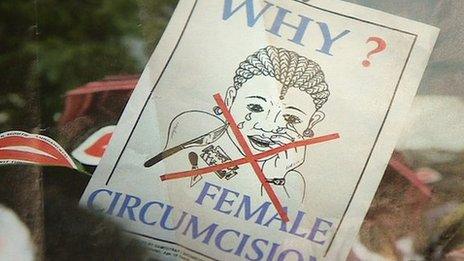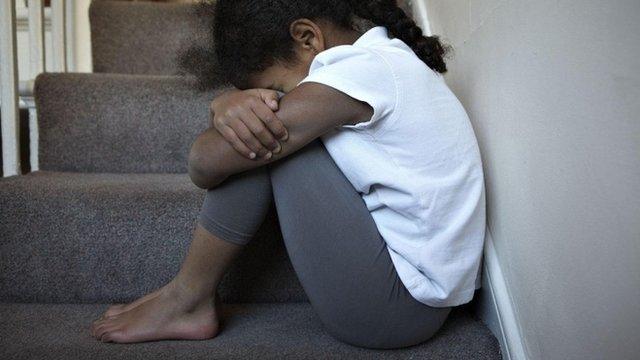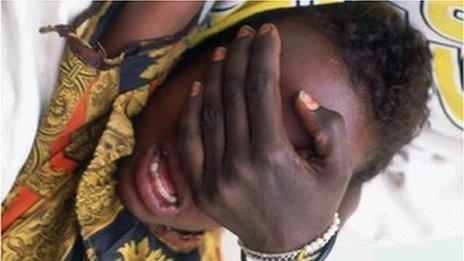Teachers 'should check holiday plans for FGM clues'
- Published

Female genital mutilation is often carried out on girls as young as four
Teachers should scrutinise the holiday plans of families from communities that practise female genital mutilation (FGM), a conference has heard.
School staff should also watch for signs of FGM, such as frequent toilet trips and girls in pain.
The Association of Teachers and Lecturers (ATL) says teachers need more training to help them identity and protect girls at risk.
At least 66,000 girls and women in the UK are believed to be victims of FGM.
Campaigners say girls are most at risk of undergoing the procedure during the long summer holidays.
'Scrutinising holiday requests'
The ATL, at its annual conference in Manchester, passed a resolution to lobby politicians to eliminate the practice and to develop resources to advise teachers and support staff on how to tackle the problem.
Proposing the motion, Helen Porter, from Berkshire, said school staff should openly discuss the issue with parents.
"Schools and education staff can help by opening discussion with parents, and scrutinising holiday requests and summer holiday plans from members of communities that practise FGM.
"They should be vigilant for the signs of FGM such as frequent toilet visits and pain whilst sitting down. Schools should publicise the NSPCC's FGM helpline to pupils, parents and staff.
"We must aim to empower girls by discussion in age-appropriate PSHE [personal, social and health education] lessons delivered by trained teachers.
"We must equally empower boys to challenge this practice. Do they want this for their sisters, daughters, girlfriends or wives?"
Ms Porter said the practice of FGM should never be described as female circumcision, as there was no medical benefit and rarely any anaesthetic used.
She said the term female circumcision was "equivalent to describing deforestation as rainforest topiary".
Ms Porter said: "FGM is child abuse. It is a violation of a child's human rights, and according to the United Nations is a cruel, inhumane and degrading torture that should be eliminated."
'Enabling environment'
Tendai Mashapure, from Cambridgeshire, said: "We need to commit ourselves to the creation of an enabling environment where individuals are empowered to make decisions based on the best interest of their children.
"FGM will not end only by targeting those who practise FGM, but rather by engaging with all families, focusing on youth who will be future parents and targeting the leaders who have influence over community members.
"In other words, by reducing the demand for the practice, it will eventually become obsolete."
ATL general secretary Dr Mary Bousted said: "Teachers have been put in a position of great responsibility. What they need now is clear guidance on how to fulfil those responsibilities.
"They need a clear system for reporting their concerns."
Dr Bousted welcomed the letter that Education Secretary Michael Gove sent to schools last term, urging them to protect girls at risk from what he described as "this very serious form of child abuse".
FGM includes procedures that remove or injure female genital organs for non-medical reasons.
Dangers include severe bleeding, problems urinating, infections, infertility, mental health problems, complications in childbirth and increased risk of death for newborns.
Two men were charged last month, in connection with performing FGM, under the Female Genital Mutilation Act 2003, external. They were the first people in Britain to face such charges.
The NSPCC children's charity set up a 24-hour FGM helpline, external last year.
- Published6 February 2014

- Published16 February 2014

- Published8 February 2014
